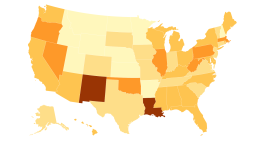SNAP Recipients and Federal Workers Face Hardship as Shutdown Drags On

The ongoing government shutdown is creating severe challenges for millions of Americans, particularly for recipients of the Supplemental Nutrition Assistance Program (SNAP) and federal workers. As the shutdown enters its fifth week, individuals like Laterese Johnson are struggling to make ends meet, with limited food benefits available for her and her grandchildren.
Johnson highlighted the difficult reality during an interview, stating, “With the amount of SNAP benefits that I receive, it’s just enough to feed one person, but I have to share that with my grandchildren.” This sentiment is echoed by many as the shutdown continues, leaving recipients uncertain about their food assistance payments.
The U.S. Department of Agriculture is currently facing challenges in distributing payments. Although two judges recently ruled that the administration must access emergency funds for the approximately 42 million SNAP recipients, the timing and amount of these payments remain uncertain. With around 3 million recipients expected to receive their benefits on November 1, 2023, the situation is critical, especially as the contingency fund lacks sufficient resources to cover the total costs.
Political Dynamics Complicate Relief Efforts
Political negotiations in Congress are contributing to the stalemate, with GOP House Speaker Mike Johnson suggesting potential progress toward ending the shutdown after the upcoming elections. He indicated that Democrats may fear that resolving the impasse could negatively affect voter turnout in key races in states like New Jersey, Virginia, and New York City. This comes as pressure mounts from former President Donald Trump for Republican leaders to take decisive action by eliminating the Senate filibuster, a proposal that has met with resistance.
The emotional toll of the shutdown is also apparent among SNAP recipients. Rachel Kent, another SNAP beneficiary, expressed frustration, stating, “Congress can debate budgets all day, but you don’t debate whether children get to go to bed hungry.” The prolonged funding lapse is straining food banks, charities, and nonprofits that assist those in need.
Nina Savransky, a former disaster response worker, reflected on the growing food insecurity she witnessed while volunteering at a food bank in Washington, D.C.. “It’s shocking to see this happen in the United States,” she remarked, noting that the situation resembles crises typically seen in unstable countries.
Food Banks Struggle to Meet Rising Demand
As the political deadlock continues, food banks nationwide report an alarming increase in demand, a trend that is likely to worsen with delays in SNAP payments. Claire Babineaux-Fontenot, CEO of Feeding America, warned of devastating consequences, stating, “For every one meal that the charitable food system can provide, SNAP has been providing nine. That’s why I’m saying ‘cataclysmic.’”
In Alaska, Cara Durr, CEO of the Food Bank of Alaska, noted heightened anxiety and concern in communities already affected by the recent Typhoon Halong. The combination of natural disaster and financial instability has left many families in precarious situations.
Federal workers are also feeling the effects of the shutdown, as indicated by the experiences shared at food banks near the nation’s capital. One employee, who has served for over 21 years, described the emotional impact of needing to rely on food assistance: “It’s different. We’ve been volunteering here for a while… And now we’re on the receiving end.”
Another federal worker conveyed the harsh reality facing her family, stating, “It’s a big impact because now we have to choose either to feed ourselves or pay the bills.” The upcoming holiday season only intensifies these worries, as families brace for the potential of going hungry during a time typically associated with abundance.
The ripple effects of the shutdown extend beyond individuals and families to local businesses. Grocers that rely heavily on SNAP transactions, such as Daweit Gebru, co-owner of Elmira Market in Washington, D.C., report significant declines in sales. He estimated that 60% to 65% of their business comes from SNAP customers and noted a downturn in customer spending amidst the uncertainty.
In contrast, Joseph Zuppardo, owner of Zuppardo’s Family Market in Metairie, Louisiana, observed steady customer traffic but acknowledged the strain that prolonged disruptions could place on his business. He mentioned plans for state-funded programs aimed at supporting vulnerable SNAP households, particularly those with children or elderly members.
As the shutdown continues, community leaders and organizations remain vigilant in their efforts to support those affected. The situation underscores the critical importance of government assistance programs in maintaining food security for millions of Americans, especially during times of crisis.






